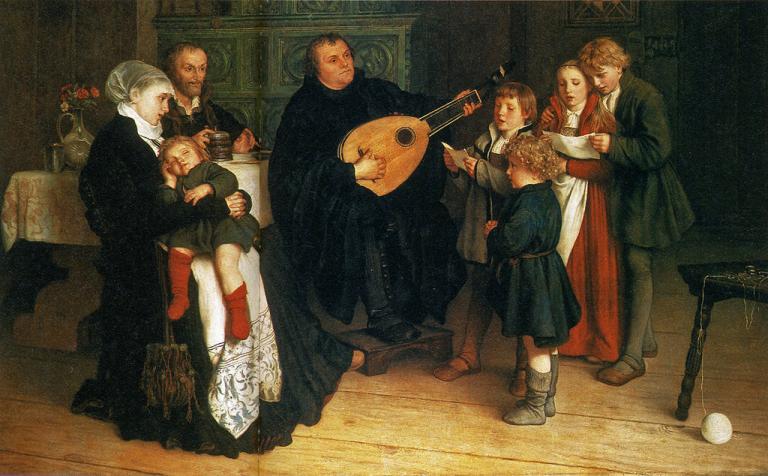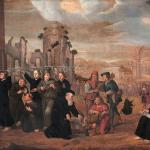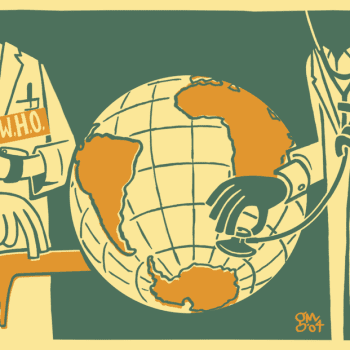Arguably, Protestantism created modernity. That’s either a blessing or a curse, depending whom you might ask. Catholic and Eastern Orthodox critics fault Protestantism for modernity’s failures, including radical autonomous individualism, rabid secularism, ideological extremisms, and hedonism. Humanity would be more in sync with its Creator if Christianity had remained moored to the authority and continuity of Catholicism and Eastern Orthodoxy, they say.
These Catholic and Orthodox arguments have some traction, but they are far from the whole story. By stressing humanity’s direct access to God and the Bible, stressing salvation through faith alone, and also uplifting non-ecclesial vocations and marital life, Protestantism ennobled and liberated much of humanity. Modern literacy, modern science, modern markets and capitalism, constitutional democracy and human rights were all advanced by the Reformation, and in a decisive way. . . .
Luther’s insistence on human direct access to God through Christ dethroned the medieval church’s grasping after inordinate spiritual and temporal power. His stress on direct reading of the Bible by laity in their own language facilitated mass literacy, in order that the Bible might be read. His translation of the Bible into German, amid endless pamphleteering, helped launch modern publishing. His departure from the celibate priesthood, and his wife’s departure from the convent, into a happy marital union, elevated marriage, and family, into godly estates no less than celibacy.
His stress on scholarship and translation from original sources, accompanied by rational discernment apart from direct ecclesial control, contributed to a broadening of scientific analysis and discovery, with free inquiry. His affirmations of professions outside the church dignified labor, trade, and finance, further enabling modern markets. His stress on private conscience and rejection of unquestioned ecclesial authority undermined political and ecclesial authoritarianism. After the Reformation, there was increasing expectation that governance was no longer the exclusive preserve of a favored few but now was a project involving all God’s creatures.
And yet, I wonder if Protestantism created modernity, for better or worse. Certainly, Luther was hearkening back to a more ancient way of thinking when he took his stand on the Bible as the source and norm of the Christian life. In the same way, the Renaissance was seeking a cultural rebirth by recovering the insights of the ancient Greeks and Roman. The move was backwards in time, not forward. Both Luther and Erasmus considered the Medieval scholasticism of their time to be “modern” and sought to recover something older.
Tooley is certainly right about Luther’s emphasis on faith, education, family, and vocation. But when he extrapolates Luther’s translation from the original sources in the Biblical languages–a principle of Renaissance scholarship–into the rise of science and technology, and when he credits Luther for the rise of capitalism, I am not convinced. Calvin is usually credited, or blamed, for the rise of trade, finance, modern markets, and, hence, capitalism. Luther believed countries should stick to their own resources and not trade for things they didn’t need, and he discouraged the pursuit of wealth. He may have been naive about that, but he wasn’t “modern.” There is a huge difference between Luther and Calvin, which other Protestants (as well as Catholics) seem oblivious to.
Tooley’s Reformation sounds more like the Enlightenment, plus evangelicalism. The missing link is Pietism, whose emphasis on human experience led naturally to an emphasis on the human mind.
Moravian Pietists converted John Wesley, who gave us Methodism, which is Tooley’s tradition. And though some Pietists held on to Luther’s theology, others went in other directions, opposing Lutheran orthodoxy in favor of a more individualistic and later more “enlightened” faith. That is to say, they became more “modern.”
But just as we don’t have to accept the progressive paradigm of human society getting better and better, we don’t have to accept the Procrustean bed of pre-modern, modern, and post-modern. Those categories are far too broad to capture the nuances of history. Surely there was a huge difference between the classical and the medieval–are both “pre-modern”? And what about the differences between ancient Greece and ancient Rome? And where does Romanticism fit in? Is it “modern” like Enlightenment rationalism is modern?
Suffice it to say that reforming the church around the Gospel of Christ and the Word of God, as inaugurated by Luther, was much needed. And it did a great deal of good, not only for European culture but for the world. And that in our broken culture today we would do well to draw on that influence again.
Illustration: “Luther Making Music in the Circle of His family” by Gustav Spangenberg (ca. 1875), Museum der bildenden Künste, Public domain, via Wikimedia Commons

















